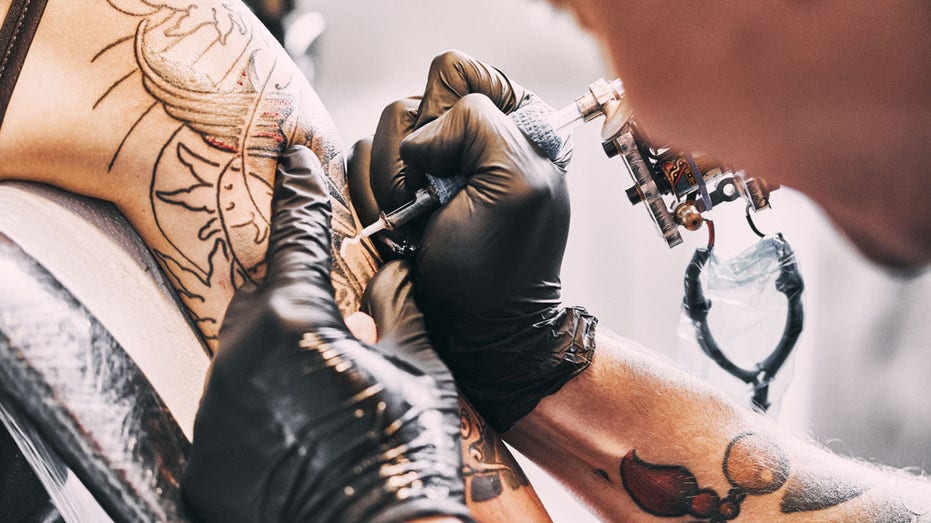
A new Swedish study has found that tattooed individuals have a 21% increased risk for lymphoma, a type of blood cancer. Here’s a deeper dive into a potentially growing health issue.
In the modern landscape of self-expression, the allure of tattoos has only continued to grow.
But a new study contains a startling revelation: People with tattoos may have a 21% higher risk of developing lymphoma.
The study from Lund University in Sweden finds that people’s chances of developing lymphoma increase regardless of the tattoo’s size.
MELANOMA PATIENTS REVEAL DRAMATIC STORIES FOR SKIN CANCER AWARENESS MONTH: ‘I THOUGHT I WAS CAREFUL’
Dr. Christel Nielsen, the study’s leading author, emphasized the cultural significance of tattoos as a form of body art.
“People will likely want to continue to express their identity through tattoos, and therefore it is very important that we as a society can make sure that it is safe,” said Dr. Nielsen in a statement.
The remarks highlight the broader health and safety implications of the growing tattoo trend.
Here’s a deeper dive.
Lymphoma is a type of cancer that attacks the lymphatic system, a key component of the body’s immune defense.
The study found that the most common types of cancer associated with tattooed people were diffuse large B-cell non-Hodgkin lymphoma and follicular non-Hodgkin lymphoma.
The American Cancer Society notes that non-Hodgkin lymphoma is one of the most common cancers in the U.S., accounting for about 4% of all cancers.
The cancer organization estimates about 80,620 people will be diagnosed with non-Hodgkin lymphoma this year.
The new study, published in the eClinicalMedicine journal, spanned a decade and involved 11,905 participants ages 20 to 60.
Of this group, 2,938 individuals had lymphoma. The participants, which included those diagnosed with lymphoma as well as people in a control group, were required to complete a detailed questionnaire about tattoos.
CANCER SCREENINGS: HERE ARE 5 TYPES AND CRITICAL INFORMATION TO KNOW ABOUT EACH
While the study did not find any significant correlation between the size of tattoos and the risk of lymphoma, it did find the risk of lymphoma is highest among those who had their first tattoo less than two years prior.
Researchers say more study and work is needed.
The report comes at a crucial time when tattoos are gaining traction across demographics.
An August 2023 Pew Research Center survey illustrated the prevalence of tattoos among Americans, finding that 32% of adults have at least one tattoo.
Among those, 22% have more than one tattoo on their body. Furthermore, the Pew data found that tattoos are more common in women than in men.
Currently, the Food and Drug Administration (FDA) does not regulate the inks and pigments used in tattoos. Although the FDA does have some oversight over tattoos, it leaves active regulation to the jurisdiction of state and local entities.
PERMANENT BRACELETS: THE TREND THAT’LL GIVE THE ‘THRILL’ OF A TATTOO ‘WITHOUT THE PAIN’
Fox News medical contributor Dr. Janette Nesheiwat, a double board-certified medical doctor practicing in New York, raised concerns about the issue. “Ink is considered carcinogenic,” she said.
“The immune system gets activated in response to the ink you put in your body,” Dr. Nesheiwat said on “FOX & Friends First” recently.
Tattoos appear to grow more acceptable and common with each passing year, fueled perhaps by the adoption of them among both celebrities and many others.
This acceptance aligns with forecasts from Fortune Business Insights, predicting that the global tattoo market size will more than double, from $2.22 billion to $4.83 billion by 2032.
Yet, despite the market’s growth, comprehensive information on the long-term health implications of tattooing is scarce.
CLICK HERE TO SIGN UP FOR OUR HEALTH NEWSLETTER
The Lund University researchers have called for more comprehensive examinations into the relationship between tattoos and various health outcomes, acknowledging their findings are limited.
The researchers now plan on examining possible links between tattoos and different cancer types as well as inflammatory diseases.
The research community is eager to unravel the full impact of tattoos on human health as their popularity continues to grow.



